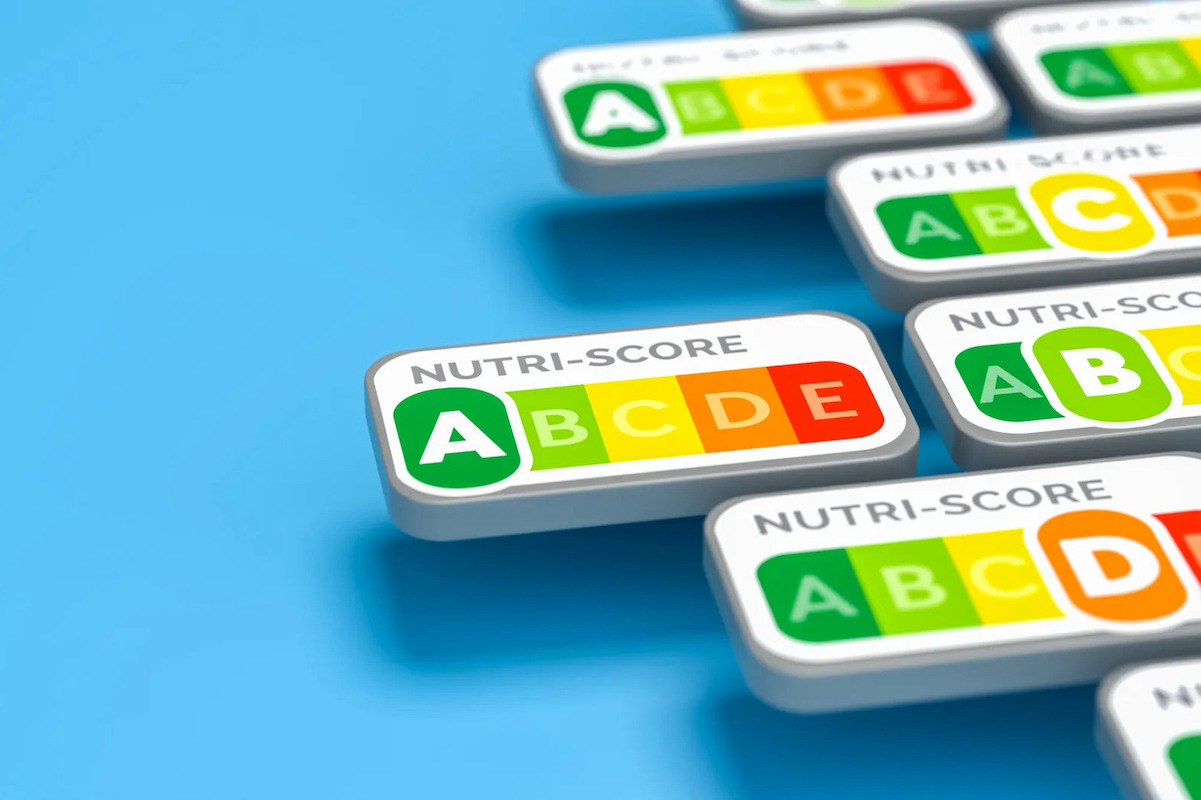France is set to change its Nutri-Score nutrition labelling system by the end of the year to better reflect the latest food and health knowledge. Our nutrition expert Tristan Boetti explains.
Health authorities announced in late April that France and other European countries will make the change at the end of 2023, and companies will have to years to adapt their labelling. The update means, for example, that drinks containing sweeteners like Diet Coke will be less recommended, as recent studies show that it has no advantage over conventional sugars.
The Nutri-Score is a front-of-pack labelling system developed in France to help consumers make healthier food choices. It assigns a letter grade and a colour code to packaged foods, with A being the healthiest and E being the least healthy. The score is based on a formula that takes into account the nutritional value of a food product and its overall composition. The formula considers the amount of energy, saturated fats, sugars, sodium, protein, fibres, fruits, and vegetables in a product.
UPCOMING CHANGES
The scoring system was first introduced in France in 2017, and has since been adopted by other European countries such as Belgium, Spain, and Germany. It is designed to be easily understood by consumers and to help them compare the nutritional quality of different food products. Recently, the scoring system has undergone some changes to improve the formula based on new recommendations and knowledge about food and health, and will be put in place at the end of the year.
CEREALS
In the past, many high-sugar cereals were given a decent score, but not anymore. Nowadays, they can only hope to get a C, at best. It’s common knowledge that we should be mindful of our sugar intake, but it’s still a challenge given how pervasive it is in our food supply. Unfortunately, many of these cereals also lack essential nutrients and fibre, and they’re often loaded with artificial flavours and preservatives. This means we can eat a lot of them without feeling full or satisfied, which can lead to overconsumption and unhealthy habits.
FROZEN PIZZAS
Frozen pizzas have been a staple of quick and easy meals for years, but their nutritional value has been a point of concern in recent times. Despite being highly processed and containing a myriad of additives, some frozen pizzas were still able to receive an impressive A score on the supermarket shelves. However, with the recent change in scoring criteria, it seems unlikely that any pizza will be able to attain the coveted top score anymore.
DAIRY DRINKS
Some dairy drinks loaded with sugar are still receiving the highest score possible, but things are about to change. With the updated scoring system, the best they can hope for is a C. On the other hand, non-dairy alternatives such as soya, oat, almond milks and others, will not receive the top score but will vary between B and E depending on their nutritional value.
RED MEAT
Recent studies have shown that consuming red meat may increase the risk of developing heart disease, certain cancers, and type 2 diabetes. This is because red meat contains heme iron, which can have negative effects on our health. As a result, red meat will now receive a lower score in the new scoring system, with only lean red meat potentially keeping its top score. On the other hand, poultry will maintain its current score, while processed meats will see a decline in their rating.
DRINKS WITH ARTIFICIAL SWEETENERS
It seems like many of us have made the switch to sugar-free drinks in an effort to cut down on our sugar intake. But have we been making the right choice? While it’s true that sugar-free versions of our favourite sodas are now widely available, they often come with a catch. Instead of sugar, these drinks are sweetened with artificial sweeteners.
Recent studies have shown that there are no significant benefits to drinking sugar-free sodas compared to their sugary counterparts. Whilst we are waiting for more evidence, the Nutri-score ranking of these sugar-free sodas will see a decline in their scores.
OILS
The Nutri-Score of oils has seen a significant improvement, with olive and rapeseed oils getting an upgrade from a C to a B. This is due to their high content of “good fat” – a blend of omega-6 and omega-3 – which has been linked to a reduction in LDL-cholesterol, and anti-inflammatory properties that may lower the risk of heart disease. Similarly, sunflower oil will also see an improvement, going from a D to a C. However, coconut oil will still receive a score of E, as it contains high levels of saturated fat which have been associated with an increased risk of heart disease when consumed in excess.
A BETTER BUT NOT PERFECT SCORING SYSTEM
The Nutri-Score system has become a valuable tool for health-conscious shoppers looking to make informed choices about their food. With a growing awareness of the importance of healthy eating habits, the system has proven to be effective in guiding consumers towards healthier food options. Several studies have shown that the Nutri-Score can influence purchasing decisions and encourage people to choose more nutritious options.
However, it’s important to remember that the Nutri-Score is just one of many tools that can be used to promote healthy eating habits. Cultural and social factors, personal preferences, and accessibility to healthy foods are also important considerations. Nonetheless, the Nutri-Score system is a step in the right direction towards a healthier and more informed society.
Tristan Boetti is a sports nutritionist. Through his company Performance & Bien-Être Monaco, he works with professional athletes as well as recreationally active individuals to help them achieve their goals through customised nutrition plans and expert advice.
Photo source: aprott / Getty Image

